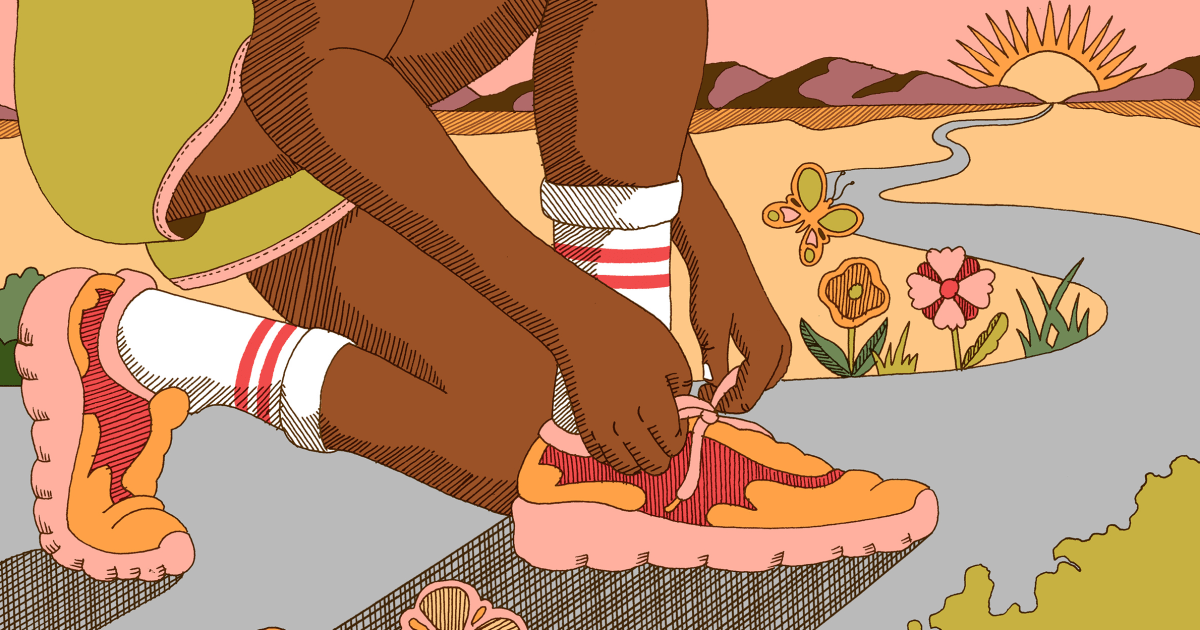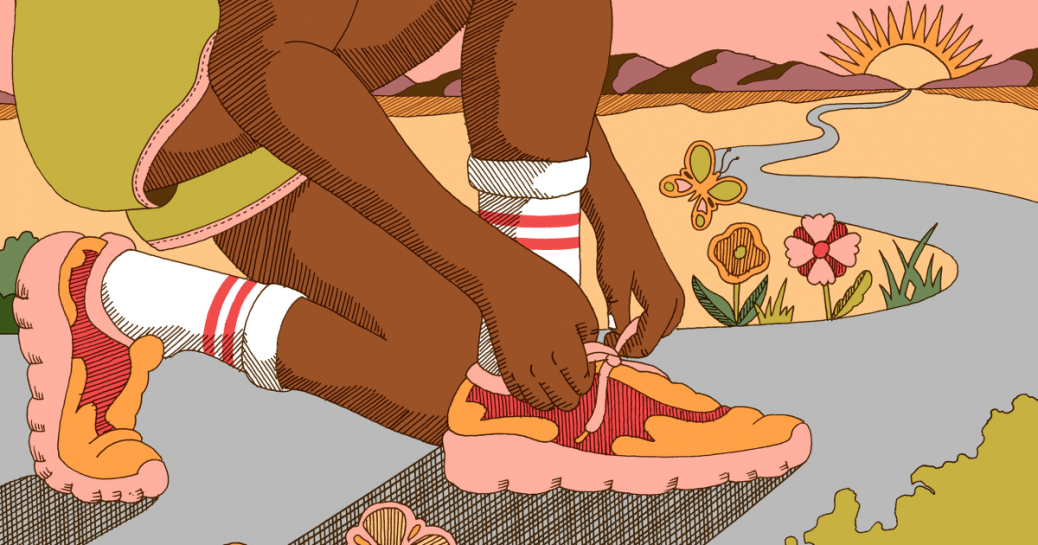
Six weeks into 2024, many of us are already feeling behind on the New Year’s resolutions we set.
According to a survey of more than 5,000 U.S. adults conducted by the Pew Research Center last month, 41% of those who made resolutions had already called it quits on some or all of those goals.
“Just because you fell off the trail of your resolution pursuit doesn’t mean you can’t get back on,” said Deborah Carr, a sociology professor at Boston University. “If you failed in January, it doesn’t mean you’re a failure.”
NBC News asked seven experts — registered dietitians and professors of psychology, sociology or behavioral science — for their suggestions about how to get back on track. Their advice: Refine your goals to be specific and achievable, make your resolutions fun by incorporating things you already enjoy, link up with an accountability buddy or perhaps forgo New Year’s resolutions altogether.
Here are some research-backed strategies to try for the rest of the year.
Make resolutions specific and track your progress
Setting too broad a goal for the new year is a recipe for failure, said Ayelet Fishbach, a professor of behavioral science and marketing at the University of Chicago Booth School of Business.
Resolutions like “I want to exercise more” can feel overwhelming to maintain because there’s no objective way to track progress, Fishbach said. Instead, she suggested, narrow your exercise goals to working out for 150 minutes a week or going to the gym three times weekly.
“Without any specifics, it’s hard to feel empowered by what you did or motivated by what you still need to do because you never quite set a number,” Fishbach said. “So set a resolution where you can know where you stand.”
Research suggests that keeping track of progress can help people stick to goals. A 2021 review of studies involving older adults and patients with chronic diseases found that monitoring progress was key to exercising consistently. Meanwhile, a 2015 review involving nearly 20,000 participants found that tracking progress increased the likelihood of succeeding at goals such as quitting smoking, losing weight or changing diets.
Incorporate things you already enjoy into new habits
Many people set resolutions in pursuit of long-term goals like improving overall health or fitness, Fishbach said. But to keep up with a goal, she said, enjoying the process is more important than focusing on the desired result.
“We are able to think about the future more than any other animal, as far as we know. So we do plan for the future, but we are still animals,” Fishbach said. “We still live in the present.”
Wendy Wood, a professor emerita of psychology at the University of Southern California who researches how habits guide behavior, said her knees and back weakened with age, so she bought herself an elliptical machine to incorporate low-impact cardio into her routine. But using the elliptical was painfully boring, she said, and as a result “it turned into a clothes hanger for a long time.”
To get back on track, Wood began watching “trashy TV shows” while she exercised.
“It made working out on the elliptical fun,” Wood said. “I was able to add something to it that made it more enjoyable, and I started repeating it, and I now use it regularly.”
Research backs that up: A 2020 study followed people in Norway who had recently joined fitness clubs. After one year, the participants who exercised regularly were more likely to report that they enjoyed the feeling of exercise compared to those who didn’t exercise consistently.
Fishbach’s 2016 analysis also found that while people who pursued long-term goals like improved health may at first be motivated by future rewards, immediate rewards like enjoying a workout were more strongly associated with persistence toward a goal. Another study of hers from the same year found that gym-goers who chose the most enjoyable weightlifting exercises completed more sets than those who chose the weightlifting exercises they found most effective for their health goals.
Making resolutions fun doesn’t apply only to fitness goals, said Patricia Bannan, a registered dietitian. Bannan said experimenting with healthy recipes can make nutrition-related goals more enjoyable.
“I do a recipe where you just open a date, you add some peanut butter or some nut butter in there, you can even put a little dark chocolate on top, you put them in the fridge. It tastes like a Snickers bar,” she said.
Find an accountability buddy
Experts agree that it’s also helpful to have someone hold you to a resolution.
Hengchen Dai, an associate professor of organizational behavior and behavioral decision-making at the UCLA Anderson School of Management, said her goal is to be asleep before 12 a.m.
She typically succeeds if she stops work and turns off her computer by 11 p.m., she said. That gives her enough time to get ready for bed by 11:30 p.m. and be asleep before the clock strikes midnight. But when she loses track of time, she said, her daughter reminds her of her goal.
“She’ll say: ‘Mama, don’t forget to sleep. Turn off your PC,’” Dai said.
Some studies suggest that having someone hold your feet to the fire is associated with increased chances of success. A 2018 study in North Carolina found that people who had “buddies” during weight loss programs lost more weight and reduced their body mass indexes and waist sizes more than those without buddies. Those who perceived their buddies as attentive, caring and encouraging saw the largest reductions in BMI and waist size.
Another 2018 study in Chile found that people who had peers holding them accountable for saving money deposited money into savings accounts more than three times as often as those who didn’t have anyone holding them to it.
“People really need the support and encouragement of others to set themselves up for success,” Carr said.
Find motivation beyond the new year
Don’t feel pressured to pursue long-term goals just because it’s the start of a new year, Dai said. Her research suggests that people are also motivated to chase goals after events such as birthdays, anniversaries, holidays or simply the start of a new week or month.
Dai calls that the “fresh start effect.” People are more likely to pursue goals after special time markers because they feel separated from their past mistakes, which can feel like a blank slate, she said.
Wood said the top of a new year isn’t necessarily the best time to make a goal if nothing in your life has changed recently. She said she doesn’t set New Year’s resolutions.
Forming new habits is easiest when you’re in a new environment because you haven’t settled into a routine yet, she said.
In that sense, Wood said, it may be easier to set goals after moving homes, starting new relationships or jobs, taking vacations or transferring schools.
“That’s why it’s tiring when we move. We have to find a dry cleaner, we have to figure out where’s the best grocery store, we have to make all these decisions. But it’s an opportunity,” she said. “That’s the best time to try to change your behavior to make resolutions, because the old habits aren’t constantly being activated and competing with your new resolution.”









Recent Comments